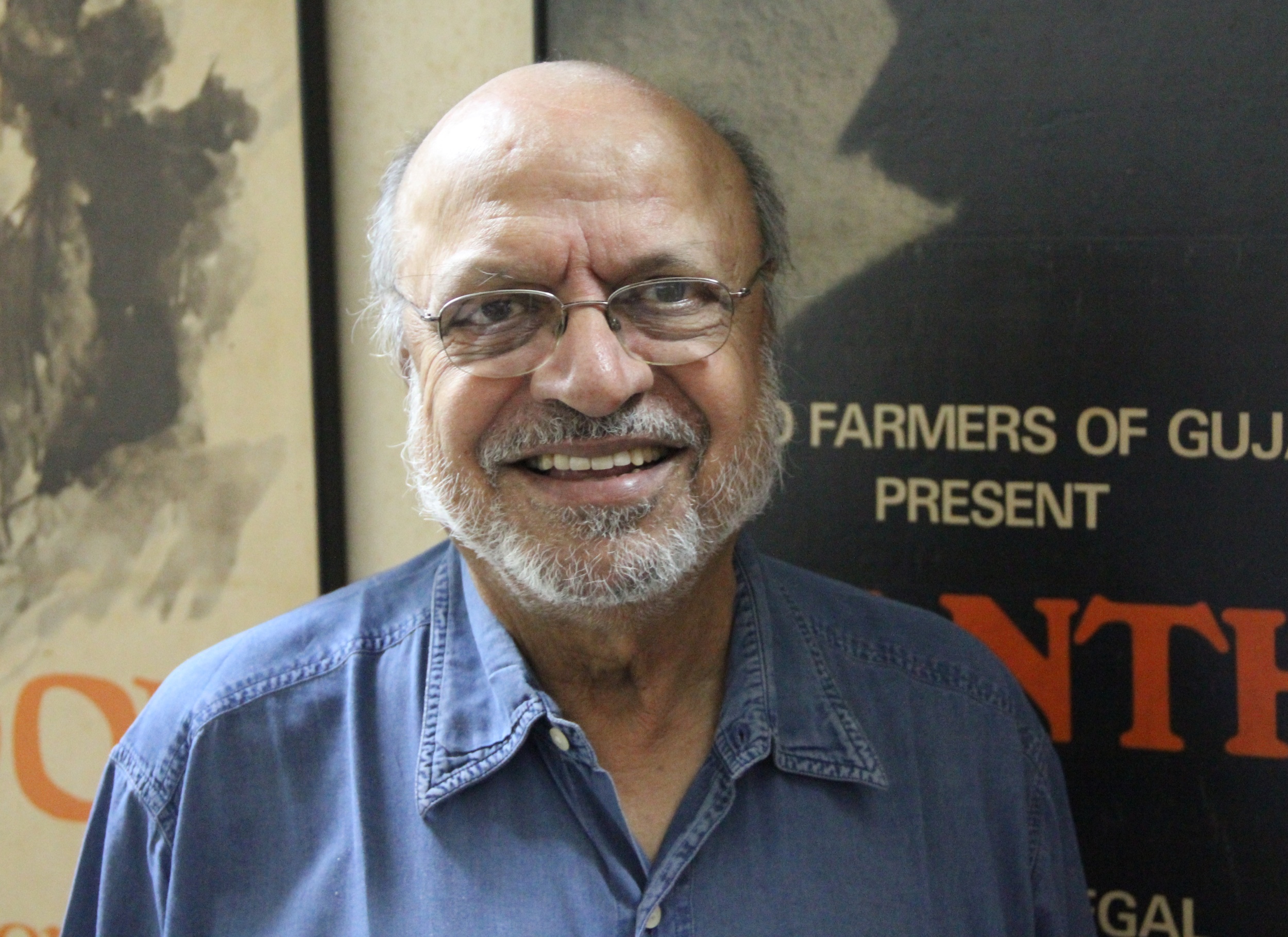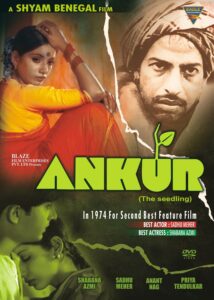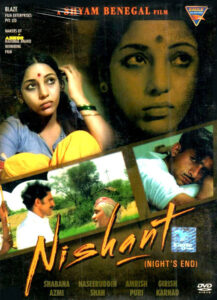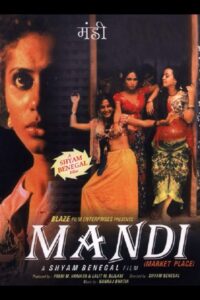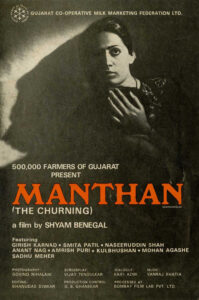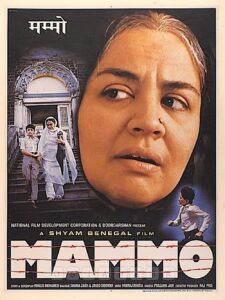Remembering key milestones in Shyam Benegal’s journey in parallel cinema
Dadasaheb Phalke award winner Shyam Benegal was born in Hyderabad during British Raj on December 14, 1934. He started his career with an advertisement agency in Mumbai as a copywriter but soon moved towards filmmaking. He is believed to be one of the founding members of parallel cinematography.
Benegal is famous for his pragmatic portrayal of the chaotic socio-political environment of a young nation in the 1970s. He is a fan of the noted film director Satyajit Ray and was heavily influenced by him, this was quite evident with the direction and portrayal in his films.
Most directors in the 1970s focused on making films showing romanticism, revenge or emotional aspects of cruel fate. Benegal however is one of the only few directors who focused on social norms prevalent during the time. He forced the viewers of his films to give a thought to the ongoing social problems ubiquitous in different sections of society. Benegal also made some memorable television series, notably Bharat Ek Khoj adapted from Discovery of India, penned by Jawahar Lal Nehru, India’s first Prime Minister.
With Shyam Benegal turning 86 today here are the five most influential films furnished by him which changed the course of Indian cinema.
Ankur (The Seedling) 1974
His first commercial success was Ankur. The feature was set in rural Andhra Pradesh portraying the entrenched social norms of casteism, sexism, patriarchy and hypocrisy prevalent during that time while subtly depicting the challenges and problems different strata especially the lower class had to face. The film despite being more than four-decade-old is still relevant to society.
It is a story revolving around Lakshmi (played by Shabana Azmi) a poor Dalit woman living with her unemployed husband. The local zamindar or landlord sends his son Surya (played by Anant Nag) to manage a farmland. He however falls in love with Lakshmi. Their romance being quite evident to the villagers is met with heavy criticism. The courageous portrayal of Lakshmi being able to put her desires above the social expectation is quite ahead of his time. In each step of the film, Benegal has ensured that casteism is starkly evident.
Nishant (The Night’s End) 1975
Nishant is another film set in the rural areas of Telangana in the pre-independence era. Benegal here explored the social segregation and complex sexual desires which arise from terrible actions of those in the upper class.
The story revolves around a group of self-indulgent zamindar or landlord brothers who have a death grip on the village and the neighbouring districts. Susheela (played by Shabana Azmi) is the somewhat discontented but spirited young wife of a dignified, middle-aged schoolmaster (Girish Karnad). Vishwam (played by Naseeruddin Shah) one of the brothers, set his eyes on Susheela. The brothers plan the abduction of Susheela and declare her a prize for their brother while stating that she will service them too. The film further goes to show how the relation between Vishwam’s wife and Susheela moves forward once she has learnt after the sexual exploitation she has developed feelings for Vishwam.
Mandi (The Marketplace) 1983
He moved away from the rural settings and started focusing on the urban problems with the onset of the 1980s. Mandi a film addressing the awkward topic of sex workers was an innovative and novel brain baby of the innovative director. It depicted the community of sex workers, working in brothels and presented them in a dignified and humane manner.
The film presents women living in Telangana working in a brothel as people who relentlessly defend themselves, never back down from a fight and staunchly command to be treated respectfully. The woman single-handedly running the brothel is a matriarchal figure, Rukmini Bai (played by Shabana Azmi). She is solely responsible for their welfare and safety. The film revolves around the relationship of Rukmini Bai and Zeenat (played by the late Smita Patil), the daughter of a sex worker in the brothel who passed away while giving birth to her. Rukmini sees Zeenat as her own daughter and calls her beti or daughter.
Rather than encouraging Zeenat to go into prostitution, she encourages her to pursue dance and music. Many men have their eyes set on Zeenat. However, she is defended by Rukmini. Often it is shown that Rukmini is saving Zeenat for the highest bidder.
This film raises the question that society questions the sex workers for their profession however, the men seeking such pleasures should be placed under trial. Benegal with this on-point casting beautifully brought this social notion into the light.
Manthan (The Churning) 1976
Benegal with his movie Manthan depicts how conservatism and corruption together affect the development of society. In the movie, an ironic touch is given with the untouchables rallying against the development which will help them gain the most.
The story revolves around a young and high-principled engineer Dr Rao (played by Girish Karnad) and a construction crew who have been sent to a remote rural town to organise and build a milk co-op. The conservative townspeople, especially those of the untouchable caste who have the most to gain, resist progress. The engineer makes a few allies on the local scene but is ultimately driven away when the forces of conservatism and corruption join together. Smita Patil, a favourite actress of Benegal’s and who was cast frequently by him, features in the film as a single mother who develops feelings for Rao, even though he is married.
The film is set along with the early phases of the White Revolution in India. The film is also noteworthy for the fact that it was funded by 500,000 farmers in Gujarat who contributed INR 2 each, making this the first crowd-funded film in the Indian cinema, if not world cinema.
Mammo 1994
Mammo is set around the time of independence when the country was divided into two parts. Benegal in his creation beautifully capture’s the emotion and the fact that during partition all the communities whether be it Hindus, Muslims or Sikhs everyone suffered equally. The film goes on to show the cultural differences the two parts of the country had evident through the actions of the characters.
The film is set through the eyes of Mahmooda Begum (played by Farida Jalal) who has come to India after living most of her lifetime in Pakistan while her sisters live in India. After her husband’s death, she is ill-treated by her relatives and is forced to travel to India. She comes on a temporary visa to Mumbai upturning the lives of her sister Fayyazi (played with Surekha Sikri) and Fayyazi’s orphaned grandson Riyaz (played by Rajit Kapur). Each month she walks to the nearest police station to pay a bribe to the police officer and get an extension for her visa. However, once the police officer is transferred, the new police officer arrests Mammo and deports her to Pakistan while Fayyazi and Riyaz try everything in their power to stop her from being deported but in vain.

